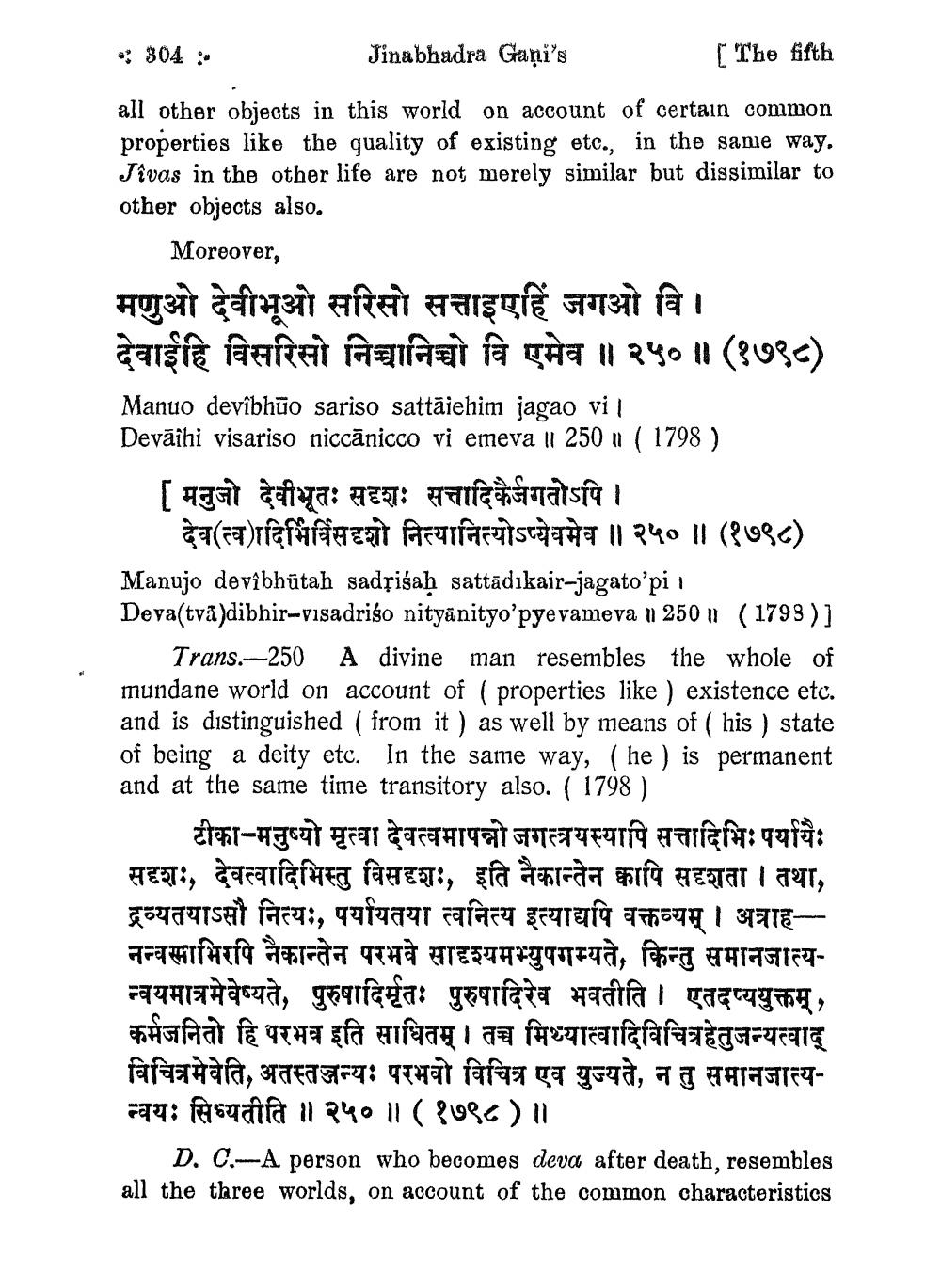________________
2:304 :. Jinabhadra Gani's
[The fifth all other objects in this world on account of certain common properties like the quality of existing etc., in the same way. Jivas in the other life are not merely similar but dissimilar to other objects also.
Moreover, मणुओ देवीभूओ सरिसो सत्ताइएहिं जगओ वि। देवाईहि विसरिसो निच्चानिच्चो वि एमेव ॥ २५० ॥ (१७९८) Manuo devîbhūo sariso sattāiehim jagao vil Devaihi visariso niccanicco vi emeva ॥ 250 ॥ ( 1798) [ मनुजो देवीभूतः सदृशः सत्तादिकैर्जगतोऽपि ।
देव(त्वादिभिर्विसदृशो नित्यानित्योऽप्येवमेव ॥ २५० ।। (१७९८) Manujo devîbhūtah sadțiśaḥ sattādıkair-jagato’pi 1 Deva(tva)dibhir-visadriso nityanityo'pyevameva ॥ 250॥ (1793)]
Trans.-250 A divine man resembles the whole of mundane world on account of ( properties like ) existence etc. and is distinguished ( from it ) as well by means of ( his ) state of being a deity etc. In the same way, ( he ) is permanent and at the same time transitory also. ( 1798 )
टीका-मनुष्यो मृत्वा देवत्वमापन्नो जगत्त्रयस्यापि सत्तादिभिः पर्यायः सदृशः, देवत्वादिभिस्तु विसदृशः, इति नैकान्तेन क्वापि सदृशता । तथा, द्रव्यतयाऽसौ नित्यः, पर्यायतया त्वनित्य इत्याद्यपि वक्तव्यम् । अत्राहनन्वस्माभिरपि नैकान्तेन परभवे सादृश्यमभ्युपगम्यते, किन्तु समानजात्यन्वयमात्रमेवेष्यते, पुरुषादिम॒तः पुरुषादिरेव भवतीति । एतदप्ययुक्तम् , कर्मजनितो हि परभव इति साधितम् । तच्च मिथ्यात्वादिविचित्रहेतुजन्यत्वाद् विचित्रमेवेति, अतस्तजन्यः परभवो विचित्र एव युज्यते, न तु समानजात्यन्वयः सिध्यतीति ॥ २५० ॥ (१७९८)॥
D. C.A person who becomes deva after death, resembles all the three worlds, on account of the common characteristics




